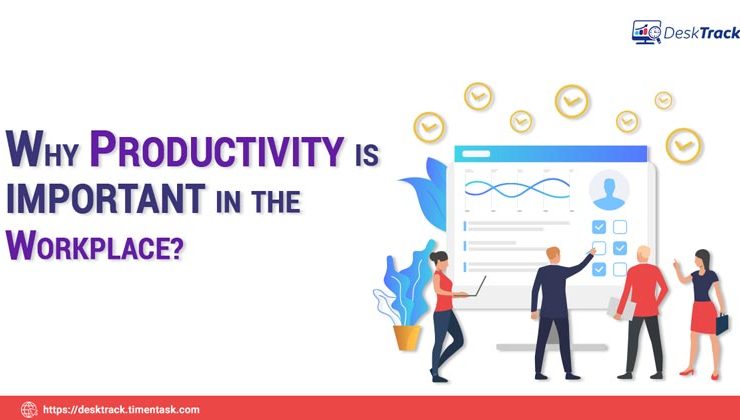In the current rapid environment, the quest of productivity has become increasingly crucial than ever before. As numerous interruptions vying for our focus, finding efficient ways to manage our workday can feel overwhelming. Whether you are a seasoned worker or starting your career, improving your output can lead to a significantly rewarding and successful work life.
The good news is that improving productivity is not about working harder but rather about being smarter. Through implementing a few simple strategies and attitude shifts, you can change your everyday routine and achieve your objectives more efficiently. In this article will discuss practical tips that will help you harness your effort and hours, allowing you to make the most of each workday.
Time Organization Methods
Effective task management is essential for boosting output in the workplace. One of the most widely-used methods is the Pomodoro Technique, which involves breaking your work into sessions, usually twenty-five minutes long, followed by a five-minute pause. This approach helps keep concentration and minimizes cognitive fatigue, allowing you to complete more in briefer stretches of focused effort. By using a clock, you can create a sense of urgency that drives you to complete tasks more effectively.
Another effective tactic is task prioritization, which helps you zero in on important tasks that correspond with your objectives. Start each day by listing your tasks and marking which are pressing and crucial. Using tools like the Eisenhower Box can aid in sorting tasks based on their urgency and importance, allowing you to assign your time efficiently. By spending time on what genuinely matters, you prevent yourself from being diverted by minor activities that use valuable time.
Setting precise targets is also crucial for managing your schedule efficiently. Clearly defined objectives provide guidance and make it simpler to track progress. Use the S.M.A.R.T guidelines—Simple, Measurable, Attainable, Relevant, and Time-bound—to define goals that boost your productivity . Consistently checking these goals can help you stay on track and make adjustments as necessary, ensuring you continue on track and increase your productivity throughout the workday.
Eliminating Interruptions
In the fast-paced work environment, interruptions can significantly hinder efficiency. To reclaim your focus, begin by identifying the causes of interruptions in your work area. This might include alerts from your phone, frequent emails, or even the conversations of coworkers. Once you identify these distractions, you can take steps to minimize their influence on your day at work. Consider establishing specific times to check your phone and emails, allowing uninterrupted periods set aside solely to your tasks.
Creating a designated workspace can also help in lessening interruptions. Whether at your residence or in a communal office, a specific area for work can signal your brain to focus. Keep this space tidy, free from clutter, and equipped with all necessary tools to limit the need for breaks. Additionally, using noise-canceling headphones or listening to background music can drown out distracting background noise, helping you to concentrate better on your projects.
In conclusion, practicing mindful work habits can greatly enhance your capacity to stay focused. Techniques such as the Pomodoro Technique, where you work for a set period followed by a short break, can help maintain elevated productivity while minimizing distraction. By committing to these practices and continuously reassessing your environment and habits, you can develop a more concentrated workday and significantly boost your efficiency.
Setting Realistic Goals
To increase productivity, it is crucial to set goals that are both achievable and feasible. When goals are too lofty, they can lead to frustration and a feeling of failure. By dividing larger objectives into smaller, manageable tasks, you can create a clear path forward. This method not only provides a sense of accomplishment as you complete each step but also helps sustain motivation throughout your workday.
Another crucial aspect of goal setting is to ensure that your goals are clear and measurable. Instead of vague objectives like "focus on project," try to define what success looks like, such as "finish the initial draft of the project by the end of the week." This clarity allows you to monitor progress and make adjustments as needed, ensuring that you remain on track and efficient in your efforts.
Finally, it is crucial to regularly review and reassess your goals based on your changing priorities and circumstances. Life can be volatile, and adaptability is key to sustaining productivity. By reviewing your goals regularly, you can ensure they correspond with your current situation and goals, making it easier to stay productive and involved in your work.

